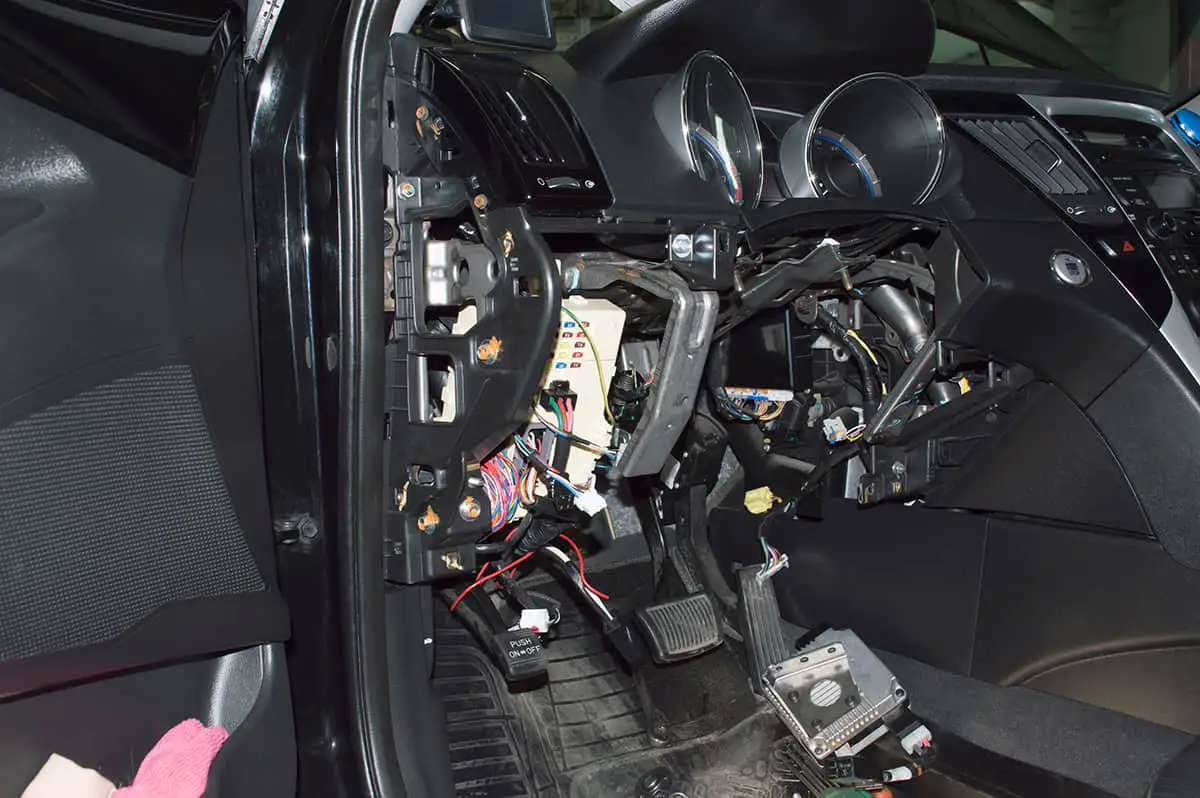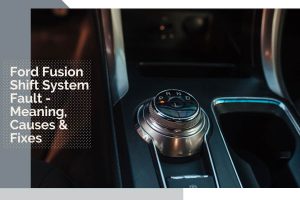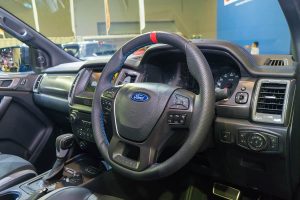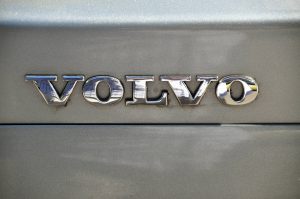Ford vehicles are well-known for their capability and versatility, and many are equipped with the ability to tow trailers. The Ford TBC (Trailer Brake Controller) plays a critical role in ensuring that the trailer brakes work in harmony with the vehicle’s brakes, but it can sometimes experience faults.
The TBC system is responsible for controlling the trailer brakes and ensuring that they work in tandem with the vehicle’s brakes for safe and effective stopping. The TBC fault is a common issue faced by many Ford vehicle owners who regularly tow trailers. It can indicate inadequate brake performance, causing the vehicle not to respond properly when the brakes are applied.
In this guide, I’ll explain what the TBC system does, what the TBC fault means on different Ford pickups, and how to tell when your TBC has been set up properly.
What Is a Ford TBC?
The Ford TBC (Trailer Brake Controller) is an electronic device that helps regulate the brakes on a trailer being towed by a Ford vehicle. This system is responsible for ensuring that the trailer brakes work in conjunction with the vehicle’s brakes, providing a safe and controlled towing experience.
The TBC works by receiving a signal from the vehicle’s brake pedal and transmitting it to the trailer brakes, telling them when to activate. This results in a smooth and consistent application of the brakes, providing the driver with greater control and stability while towing.
The TBC system is made up of several components, including the controller itself, which is usually located near the driver’s seat, and the wiring harness that connects the controller to the trailer brakes. The controller can be adjusted to suit the weight of the trailer being towed and the driving conditions, allowing the driver to fine-tune the braking performance to their specific needs.
Types of Brake Controllers
You have 2 brake controller options to choose from—proportional and time-delayed. Let’s investigate both options below:
1. Proportional
Towing vehicles can benefit from a higher degree of precision and control when stopping when using a proportional brake controller. Proportional brake controllers, as their name suggests, distribute the braking force applied to your vehicle to the trailer in a linear fashion. As a result, braking is more consistent and comfortable.
Quick reaction time for sudden and emergency braking, a smoother driving experience, and significantly less wear and tear on tires, and other vehicle components are all advantages of proportional brake controllers. On top of that, proportional brake controllers are widely regarded as the safest and most effective option.
Proportional brake controllers have their benefits, but they also have some drawbacks. It’s important to note that, compared to other types of brake controllers, they can be more expensive and complicated to install. Moreover, unlike simpler brake controllers, proportional brake controllers have more complex upkeep needs.
2. Time-delayed
You can control the rate of braking force applied to the trailer’s brakes with a time-delayed brake controller, also called a user-controlled electronic brake controller. This is a variable rate determined by the driver and can be altered to suit individual tastes or the capabilities of the towing vehicle.
Time-delayed brake controllers have a number of advantages over proportional brake controllers, the most notable being their lower cost and ease of installation. They can be attached to the trailer in whichever way is most convenient.
The use of time-delayed brake controllers is not without its drawbacks, though. One major drawback is that they can increase vehicle wear and tear because the brakes are applied with a slight delay. Incorrect use of the time-delayed brake controller can also cause pulsing in the brakes, making braking less smooth and predictable.
What Is Ford TBC Fault?
The Ford TBC fault refers to any issue that affects the normal functioning of the TBC system in a Ford vehicle. This can lead to a range of problems, including reduced braking performance and stability, an inability to regulate the trailer brakes properly, and even complete failure of the TBC system.
A TBC fault can be potentially dangerous, especially when towing heavy loads or driving in challenging conditions. Inadequate braking performance can make it difficult for the driver to control the vehicle and trailer, increasing the risk of accidents and other incidents on the road.
Causes of Ford TBC Fault
The root cause of a TBC fault can be difficult to identify, as it can be caused by a variety of issues, including electrical malfunctions, compatibility problems with the trailer being towed, or damage to the TBC controller itself.
Let’s take a closer look at these possible root causes in more detail.
1. Electrical connectivity problems
Wiring issues between the brake controller and the vehicle can cause the TBC fault to appear. Damaged or corroded wiring, loose connections, and damaged control modules can all contribute to this problem.
2. Failed brake controller
brake controller itself can fail, either mechanically or electrically. This can cause the TBC fault to appear and also result in a loss of trailer brake control.
3. Trailer wiring issues
Poorly installed or damaged trailer wiring can also cause the TBC fault to appear. This can include issues with the wiring itself or problems with the connection between the trailer and the vehicle.
4. Software issues
Sometimes, a software glitch in the vehicle’s computer system can cause the TBC fault to appear. This can be caused by an outdated software version, a software bug, or a software compatibility issue.
5. Trailer incompatibility
Some trailers are not designed to work with all brake controllers and may cause the TBC fault to appear if they are not compatible.
TBC Fault for Ford F-250
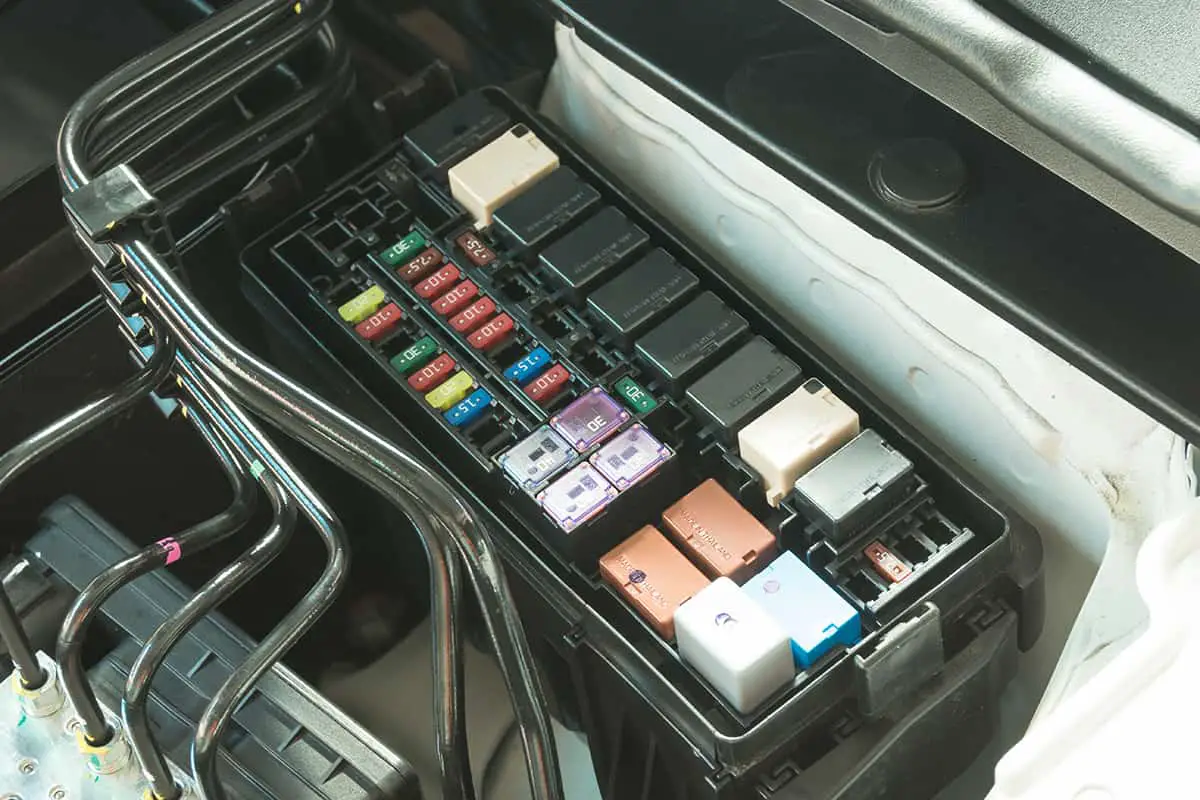
A TBC issue on a Ford F-250 signifies a faulty fuse in the vehicle’s electrical system. This can lead to the engine not starting and pose a dangerous situation.
To fix the problem, the fuse box near the left side of the steering wheel should be located and opened using tools such as a screwdriver or prybar. Once the fuse box is open, examine the fuses and the back panel, which usually contains a diagram of all the fuses, to determine which fuse is causing the issue.
Check for any irregularities on the fuse strip. If a broken fuse is found, replace it and reconnect the fuse box. If the problem persists, it may be necessary to take the F-250 to a local mechanic for further inspection.
TBC Fault for Ford F-350
The TBC fault light appearing on the dash of a Ford F-350 indicates a problem with the grounding to the trailer.
To resolve this issue, inspect each connection for looseness, wear, and corrosion. Once the source of the problem has been identified, replace it by either buying the necessary parts yourself or seeking the help of a local mechanic, which is the recommended course of action by Ford, although it may come with additional costs.
Can You Drive with TBC Fault?
Theoretically, you could still drive with a TBC fault, but you shouldn’t. TBCs are a vital safety feature that helps manage the amount of braking force applied to a trailer. If the brake controller is faulty, as indicated by a TBC fault, braking performance may suffer, and stopping distances may increase. This could endanger everyone on the road, including you and your passengers.
To add insult to injury, continuing to drive with a TBC fault can cause additional issues and costs by damaging the brake controller or other components in the braking system. As a result, the brake controller’s and any other associated parts’ manufacturer warranty may be voided.
Having a TBC problem checked out and fixed as soon as possible is always recommended. In most cases, a qualified mechanic or dealership service center will be able to assess the situation and make the required repairs. Besides putting you and other drivers in danger, driving with a TBC fault can increase repair costs and even have legal repercussions in the event of an accident.
How to Adjust Braking Power to the Trailer
The gain status indicates how much braking power is transferred to the TBC. Essentially, higher gain equals greater braking power.
After connecting a trailer to your Ford vehicle and setting up the TBC module, you should load up the TBC settings on your productivity screen. To do this, use the directional keys on your steering wheel until you open the Towing tab. Scroll down to Towing Status and hit OK.
The image on the very left will show the gain status. Hitting the + button will increase braking power while hitting the – button will reduce braking power. You can look at Ford’s comprehensive description of how to use the TBC module here.
The remaining question is, what is the optimal setting? Unfortunately, there are a ton of variables that come into play, from the type of trailer you’re towing to road conditions. Here’s a general guideline on what you can do to find the optimal gain setting:
- Start with a low setting and gradually increase it until you achieve the desired level of braking performance.
- Use a higher setting for heavier trailers or loads, as they require more braking force to stop.
- Choose a lower setting for lighter trailers or loads, as too much braking force can cause the trailer to skid or become unstable.
- Experiment with different settings on different types of terrain and road conditions to determine the best setting for your specific needs.
